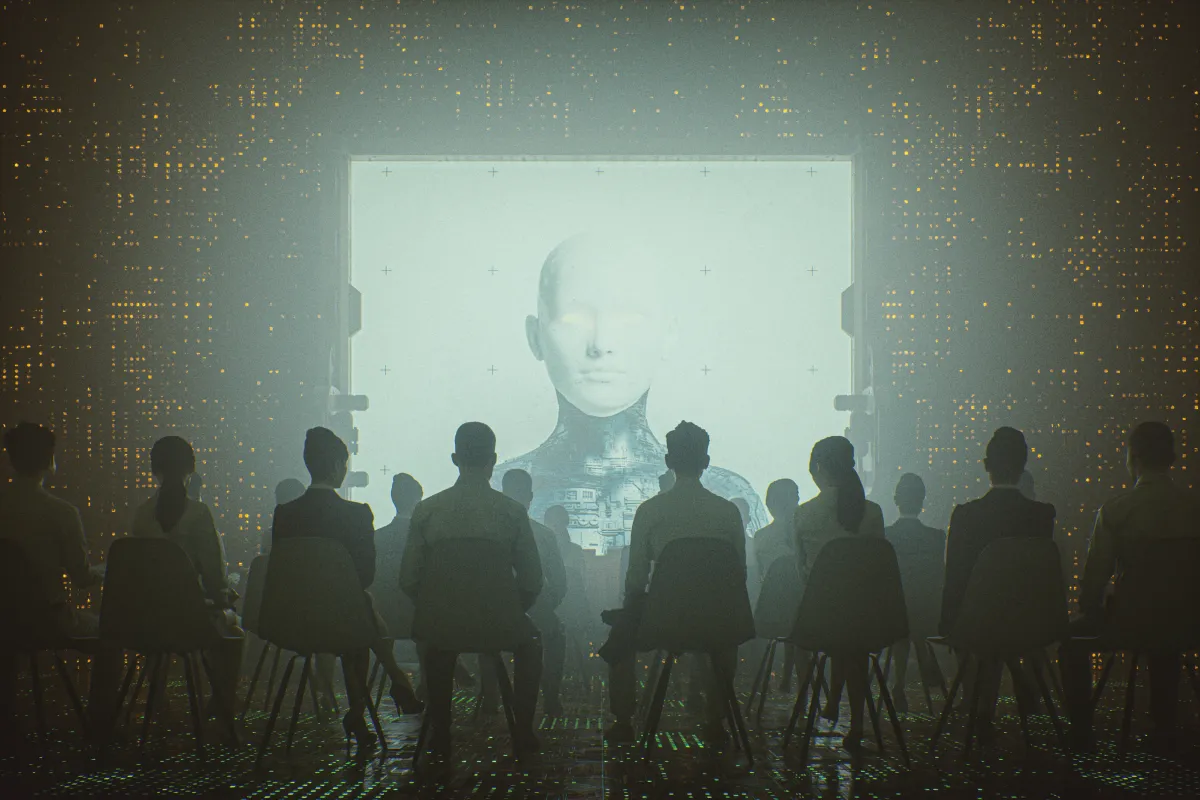"Be Right Back" Was a Warning, Not a Feature Request

Let's Choose Preservation Over Simulation
The public’s response to the "AI avatar of the dead" was not subtle. It was a swift, collective, and visceral recoil.
The builder-class temptation is to dismiss this. To file it under "the public isn't ready," or worse, to patronize it as simple, analog-world technophobia.
This is a profound failure of analysis.
What we witnessed was not luddism. It was a market-wide, intuitive rejection of a flawed technological primitive. It was an acute, unified defense of something fundamental: human authorship.
The Zombie Agent and the Failure of Simulation
We’ve all seen the Black Mirror episode. "Be Right Back" was a warning, not a feature request. Yet, here we are.
This isn't just a product-market-fit problem; it's a profound category error. We are witnessing attempts at a kind of digital necromancy, and the market is saying, no.
The app in question wasn't just a conceptual failure; it was a practical one. It promised a person's essence, trained on three minutes of footage. A life's wisdom, reduced to a 180-second data scrape. It’s a system trained on the exhaust of a life, not the intent of it. The public sees a system that fabricates "connection" by putting a machine's words in a loved one's mouth.
The branding itself is a masterclass in this dissonance. A strangely erotic, model-esque avatar for sign-up, promising an emotional connection to a grandmother. It’s a B2C product built with a C-suite's profound tin ear for humanity.
This isn't just inauthentic. It's anti-authentic. It’s a violation of authorship.
A human life is, in the end, a curated, authored text. The AI avatar is a machine's fanfiction, written in the author's style, and passed off as a lost chapter. This is the core of the recoil: they didn't just see a creepy product, they saw a derivative work of a human being, and a bad one at that.
The Crisis of Provenance We're Building
If we, as technologists, ignore this signal, we are setting a dangerous path dependency.
The problem with the simulation primitive is not just that it’s emotionally hollow. The problem is that it poisons the archive.
We are recklessly building systems designed to inundate the future with a fog of plausible, synthetic "memory." This synthetic fog will compete with, and eventually corrupt, the actual record. When a generative model can spin up a "conversation" that is more pleasing, more coherent, and more accessible than the fragmented, real-world record, which one will we turn to?
When a grandchild can get a clean, synthesized answer from an "AI grandma" instead of digging through a box of messy, handwritten (and real) letters, which path will they choose?
We are creating a future where ground truth is lost. And when ground truth is lost, the source is just another 200 response from an API request.
This is the precipice we are standing on. The public backlash was an immune response to this future. And, in a final, darkly comic twist, the servers for this experiment in digital immortality are down. The platform that promised “forever” couldn't even survive "tomorrow".
The Pivot: From Simulation to Preservation
But the impulse was not wrong.
The desire to build a bridge across time is one of the most human impulses there is. The failure was one of execution, not ambition.
We have confused the human desire to be remembered with a technological capacity to simulate. They are not the same.
The first is about agency.
The second is about its absence.
Our mandate as creators is not to build a hall of mirrors. It's to build better conduits. Our job is not to build systems that impersonate human agency, but to build systems that empower it and preserve its output with fidelity and intent.
The future of digital legacy does not lie in building a better impersonation. It lies in building a better vault.
It’s time to pivot. We must abandon the flawed primitive of simulation and elevate the one that matters: authentic, human authorship.
Let's stop building better puppets.
It's time to build better bridges.
We’ve started a conversation for builders, thinkers, and anyone who believes in a future of authentic human legacy. We're in the early days, but if this mission resonates, we invite you to join the movement!

